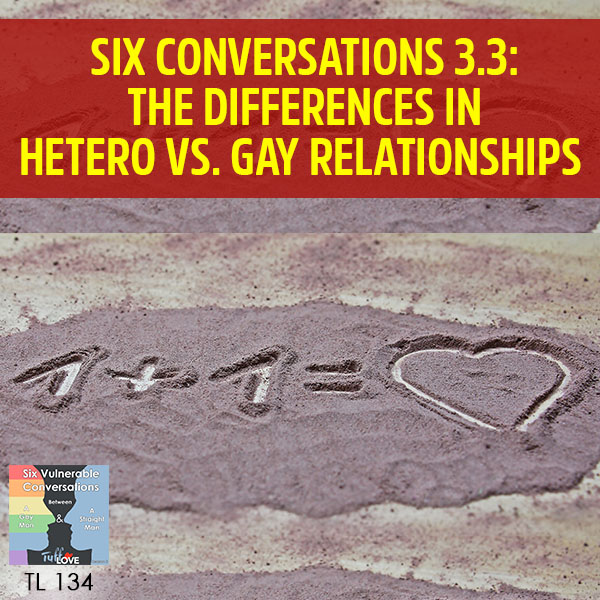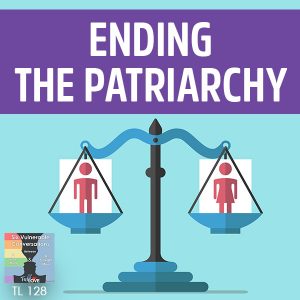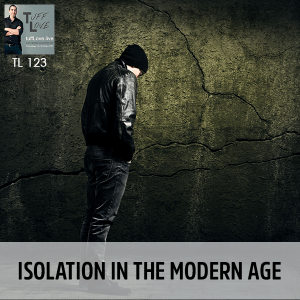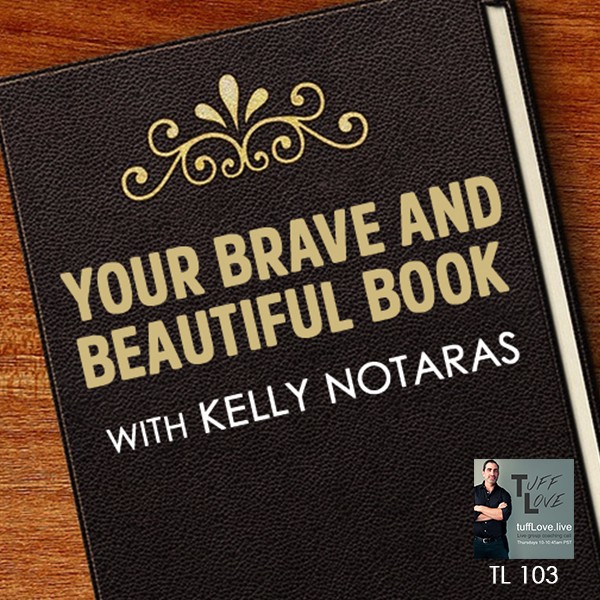
104: Your Brave and Beautiful Book: A Look Into Modern Publishing Techniques with Kelly Notaras
Jan 16, 2018
A lot of people want to write books to share their ideas to other people or just express themselves. But not a lot of people can write as easily as the next person. Kelly Notaras understands how this is a struggle for some aspiring and seasoned writers. For Kelly, it was an evolution to become a writer and an editor, so she wants to help her fellow writers having a hard time writing the narrative. At the same time, she inspires and encourages them to use modern publishing techniques. Learn as Kelly explains why writing a book these days is still a revered discipline because it can lead to business growth.
—
It’s an amazing, amazing show because I have Kelly Notaras of kn literary arts talking about the concept of Your Brave and Beautiful Book, which is the title of her upcoming book. Kelly is an established writer and editor. She’s been in the book industry for about twenty years and she just wows us with extensive amount of knowledge around how to bring your concept of a book into reality. We have two guests on the show. We have Sheza and Ruben come in and ask questions. It’s just an amazing show if you are all interested in the book industry, which I am because that’s the book for 2018. Please enjoy the show. If you feel so inclined, please give us a review on iTunes. Thanks so much.
104: Your Brave and Beautiful Book: A Look Into Modern Publishing Techniques with Kelly Notaras
I am very excited to be here with you and welcoming my very good friend, someone very special in my life and someone who hopefully is going to unload an incredible amount of knowledge on you, my friend, Kelly Notaras. Hello, Kelly.
Hi, Rob.
Welcome to the show. I’m really happy to be here. We’re going to be here talking about book writing. Kelly basically has been a kickass for many, many years. She’s worked for biggies like HarperCollins, Penguin, Hyperion Books, Sounds True. In 2013, she founded kn literary arts, an editorial studio helping authors write, edit and market their books. Her first book, Your Brave and Beautiful Book: How to Get Started, Keep Writing and Unleash Your Wisdom into the World, will be published by Hay House in 2018. Kelly and I met at OneTaste when she came on and harnessed the brilliance of Nicole into her first book, Slow Sex. I know you’ve worked with Mama Gena.
Her team helped me write my book proposal for Hay House that ultimately said, “No.” My experience with her team was amazing. This woman, Jan, she helped and then Kelly came in. The title of my book, Kelly came up with it. We had a conversation. I’m a big fan of giving credit where credit is due. The trajectory of my book, my practice in coaching was inspired by the woman you’re about to hear from. I’m just really grateful to you for your influence on me and also to have you on the show. Welcome.
Thank you, Rob. That was a very generous and thoughtful introduction.
Writer, author, editor, was that your dream job when you were a slip of a youth? Was that something you’ve always wanted to be or did you evolve into that?
I don’t think I was ever a slip of a youth. It totally was an evolution. That was definitely not on my radar when I was a kid at all. I was a huge reader. My mom is a great reader. She reads multiple books a week, so I grew up reading a lot and loving it. I did actually do some creative writing early on that I was always like, “That was good.” I would come away and be like, “I really like that story I just wrote.” Then you get to this point where you start thinking, “I’m not the best in the class. I don’t want to put myself out there,” so I just shied away from it, though I always was at the top of my class in English classes, etc. In college was when my love of literature and writing really took off. I was pre-law, but I was taking all the literature classes as my electives.
I really fell in love with writing and books. I ended up working in a bookstore for the second half of my time in college and that cemented it. I was like, “This is the best job that anyone could ever have, getting to talk to people about books all day long.” Then it was a friend of mine, now brother-in-law, who at the time was just my sister’s boyfriend, at the end of my senior year of college who introduced me to a friend of his who was working in New York as an editorial assistant at a book publishing company. I was taking a year off before going to law school. That was what I thought I was going to do but I wasn’t that excited about it. In that year I decided, “I’ll just go to New York and see if I can get a job as an editorial assistant.” Basically, the rest is history.
I think that would be a cool show in itself around your progression and your stories about the book publishing industry. I want to fast forward it to some real permanent things. You wrote in your little description that the New York Times recently reported that 80% of people surveyed wanted to write a book, but only a fraction actually ends up doing it. Two-parted question. One, why do you think people want to write a book? It’s in me and it’s in so many people, but why do you think people truly want to do that? Why do you think people do not actually follow through with that process?
In our culture, we revere authors. Click To TweetI think in our culture, we revere authors. That’s one thing that’s just the truth and there’s a good reason why we do. It is not an easy undertaking to write an amazing book. When you do, it actually changes people’s lives. People treat books very intimately. I was having a conversation with a friend of mine who’s an amazing online book marketing guru and she wrote a book. I was asking her, “What’s happened since you wrote the book?” She said, “The most interesting thing is people think they know me now. People call me up on the phone and they want to just have a chat with me as if we know each other. I don’t know anything about them but they do know a lot about me because I wrote this book.” There’s some way that a book is a very intimate process and we know how much it can impact us and we want to, in a lot of cases, help other people in that way. Also there’s the fame and fortune side of it where people who are really successful authors get a lot of glam added to their lives. I think people want that. It depends on what kind of book they’re writing. If it’s fiction or if it’s non-fiction, there are different motivations.
Why they don’t do it is because it’s a boatload of work. Truly, it is a lot of work. Having just to put together a book proposal is a lot of work. I love Anne Lamott. She’s one of my favorite authors and her book, Bird by Bird, tells about the writer’s life. She calls it butt in chair time. You have to invest a lot of butt in chair time in order to write a book. Most people either don’t have it or aren’t actually motivated by the right impulses that would be sustainable over the course of writing a whole book. Then there’s just the fact that not that many people are easy writers. I’m not going to say good writers or bad writers because there are plenty of writers who are actually beautiful writers but it’s not easy for them to write. For me, I’m very lucky with the book that I’m putting out this year. It was very easy for me to write this book mostly because I knew all the content before I’ve started. I didn’t have to do any research for it. It’s all coming from inside of me and it’s stuff that I talk to people about every single day. A lot of times, especially if you’re writing a novel, if you’re writing fiction or your own story, it’s hard to figure out what you’re going to write about. It’s hard to put that narrative together. It’s hard to then sit down and actually do it. Honestly, that’s a simplistic but true answer. It’s hard to write a book in a lot of cases and that’s why people don’t actually follow through with that dream.
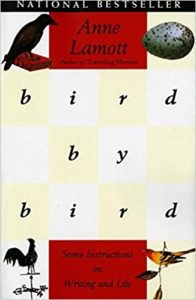
Bird by Bird: Some Instructions on Writing and Life
I want to definitely agree with that process because I actually consider myself an easy writer. Things flow because I keep talking to people about the same thing. Writing that book proposal, it was a four-month process. It was 55 pages. It was 28,000 words or something ridiculous like that. It was seven revisions between Kelly and Jan’s wisdom. At times I was just like, “Screw this. I’m making plenty of money as a business consultant. I want to get my butt out of this seat.” Then I was like, “No, Morgan will kill me. All right, I have to do it.” You said people’s motivations are often a little skewed. Can you talk about that? I think that’s a really interesting topic. What would you consider from your experience an open or expansive motivation? What would you consider yourself a condensed or limiting motivation?
It just so happens that I was revising my chapter on exactly this, so it’s very top of mind. In my book, I have six really good reasons and six really bad reasons to write a book. I don’t know that I can come up with all six right now, but I’ll give you some of the bad reasons first. Because people are telling you, “You should,” it’s not to say that that’s not a good noticing, “People want to hear from me.” That’s actually really good but that’s not good enough to write an entire book. Any ‘should’ from anybody is not going to get you through this process. Trying to right the wrongs of your parents, this is one I see a lot where it’s like, “I’m going to be really good at something because my dad will be really proud of me. My dad always wanted to write a book and never got it written, so I’m going to do that for him.” Anything in that range of parental loyalties is not going to get you all the way to the end.
Thinking you’re going to earn a lot of money from book sales is a terrible reason to write a book because 90% of people who write books earn very, very, very little from the book itself. That leads into one of the good reasons to write a book which I think is a motivation you have, it’s a motivation I have, which is that when we write a book, we get this extra added boost of cred when it comes to our businesses. If you’re writing a book that is somehow associated with your coaching practice, as you are, and me with kn literary, it makes a lot of sense to write a book. I can see that all this work I’m putting in is actually going to come back to me in revenue. It’s going to be somewhere down the line but it’s going to come back because we’re going to get clients that wouldn’t have heard of us otherwise. That’s a good reason. It excites you. If you have that fire in your belly and you’ve had it for a while, that’s actually a really good reason to write the book because that’s the kind of energy that will take you through the process all the way to the end.
What it really comes down to is both smart ideas and also that ineffable reason that is just love, joy, excitement, the things that we are looking for in life in general, the pleasure of actually writing. If you love writing, that’s a great reason to write a book because it gives you the reason to do it every single day. I love to write. Most of my book was written in Berkeley. Getting up and going to the Philz Coffee shop on college and getting my coffee and my hardboiled egg and sitting down there at 6:30 in the morning and writing was so my happy place. I loved that. I’d get a whole chapter written in three hours in that way. That to me just felt so good and so nourishing. That’s a really good reason to write if writing itself is nourishing for you.
I spent three months creating a Trello board of all my concepts per chapter and it was very easy to go down the Trello board. I’m going to actually write a Medium post about my process. I wrote 3,200 words in probably less than two hours and I couldn’t type fast enough. I was like, “I want to speak into my computer. When is this Star Trek thing?” It was so exciting because it’s part of you. There’s a lot of talk about the publishing books dying, the publishing world changing, what was so twenty years ago is very different now. From your experience, how do you see the environment in terms of publishing? Maybe you could kick in a little bit about self-publishing, which I’m planning to do, the advantages, the pros and cons and just wax the poetic about that for a bit.
Things have changed dramatically in the last twenty years since I got into the book business. Amazon was just a glimmer in all of our eye when I started in the book business. It had been around for less than five years. It was starting to take hold and it was just doing books at the time. I just found out that 56% across everything that’s being bought online is being bought on Amazon. That’s just going through the roof. That has changed the whole landscape of publishing for many reasons. One is that prior to Amazon, people bought their books by walking into a bookstore. When you walk into a bookstore, it’s like a magical fairyland of amazing books. They set it up just to trap you and to have you go, “I have to look at that.”
Then you look at it and you buy it. You end up with books that you did not know about leaving the bookstore with you. That is no longer the way that it goes. There’s a little bit of like, “People who bought this book also bought this book. You may also like.” Honestly, I don’t think I’ve ever purchased a book from one of those buy X get Y things. It’s what they call that in the book publishing business. I personally have never bought a book that way. I’ve also never walked out of a bookstore with just the one book I went in to buy. It’s such a different shopping experience that it doesn’t allow for the word to be naturally spread about titles that we didn’t know about previously the way that it used to be. That’s one major way that things have changed.
Your publishing company is going to do almost nothing to sell your book. Click To TweetAnother way is that the way most people are hearing about their books is through personality marketing. This is online conversations like this one. Newsletters, blog posts, social media, that is how authors are gaining traction with book buyers rather than depending on a publisher to do it for them. This is one of the great misconceptions that I have to re-educate people around every time I talk to somebody about who wants to publish a book. Your publishing company is going to do almost nothing to sell your book. People think that they’re going to just sell their book to a publishing company, get a few amazing rounds of editing from their editor then kick up their feet and wait for the royalty checks to come in. That is absolutely not what happens. I don’t know if it ever was quite like that but it certainly is no longer, if it ever was. You can’t count on your book publishing company to do basically anything for you. You still must have a platform. That’s probably the number one author side difference between when I started in publishing and today.
Back then, it was great. If you had a platform, if you were a known name, if somehow you’d written great books before or you were on TV or you had a column in a newspaper or anything like that, it was an added bonus. Today, that kind of reach is a requirement. You must have an audience for a traditional publisher to think that you’re interesting in any way. People always ask, “What does that mean have an audience?” I’ll just give a little bit of a hint, which is basically that if you are writing a book that’s meant for a general readership, meaning it doesn’t have a specific, really tailored niche audience, you’re going to need to have 30,000 to 70,000 names on your email list for a publisher to feel that you’re going to be able to support the publication.
It’s a radical number if you’re writing a book for a general audience. If you’re writing a book for a specific audience, the number can be less because there are already less people in the marketplace who are interested, but also there are usually fewer books, so you’re going to have less competition in a more specific niche. That’s one thing that I help authors do all the time is actually niche their book topic down. People think, “I want everyone to read my book.” Let’s start with one specific type of reader and really aim for them. Get them to adopt it, then they’ll start talking about it to people who are outside of the niche. Focusing your hook of your book, your positioning statement, your concept is extremely important for that reason.

Modern Publishing Techniques: The world actually needs more people writing transformational non-fiction.
Another way in which traditional publishing is being challenged is actually by self-publishing. I will say that within the traditional book business, people mostly roll their eyes at self-publishing. It’s still considered to be less than if you’re coming from inside of the traditional publishing business. I know this because I came from inside the business and I’ve flipped sides. Now, the majority of my clients self-publish and I see all the value in that. I still get treated a little bit less than by the traditional business because of it. Who cares? I feel like that’s a dying industry. Unfortunately, I’ve got dear friends who are still in that industry and I hope for their sakes they always have jobs. It’s not growing; let me put it that way.
Self-publishing on the other hand is exploding because basically, you’ve got 80% of people wanting to write a book. Probably not 80% of them have that kind of platform I was just talking about or even have an idea that’s going to go viral. It may be just something they themselves just really need to get out into the world like their own story, for example, or maybe it’s a novel they’ve been writing or a book of poetry that’s unlikely to be picked up by a traditional house. They get that opportunity. Never before in history can anybody publish anything. I think it’s wonderful.
I have a theory about especially the kind of projects that I do, which is what I call transformational non-fiction, is that the world actually needs more people writing transformational non-fiction. If you look around today, we never have needed so much to be inspired toward a higher vision of ourselves and who we can be as humanity than we have today. The more people writing books about that, in my view, the better. Anybody can step into any of a number of different avenues for self-publishing. Three of them that I talk about, one is really DIY. That would be working with something like Amazon CreateSpace. I prefer IngramSpark. It’s less well-known but it’s actually a better service experience for our clients where you’re basically doing everything yourself. Then there’s a hybrid option, which is something like Balboa Press or She Writes is a really great venue for women writers where you put front most of the money, but it’s also that you’re getting a lot of services in exchange versus just putting the book out on Amazon and hoping it sells. You get expertise. You get guidance. You get all that inside. The package is going to be more expensive than working directly with IngramSpark or CreateSpace, but it’s worth it for people who are just getting started with self-publishing because it can feel like a never-ending maze of all the things you need to know.
The last way is to find someone who does what I call book shepherding, which is basically a coach whose job is to shepherd you through the process of self-publishing. That is oftentimes the most user-friendly experience because they usually will have an avenue that they’ve used with many clients. They know it well. They know the ups and the downs and they can really guide you through that process. Those are the three ways that I suggest people focus for self-publishing. I’ll just say one more thing, which is you still need a platform and you maybe need it even more. 90% of self-published books never sell more than 99 copies. That is a statistic that puts fear in the hearts of self-publishing authors. It’s just to say most people don’t know how to build a platform or the fact that they need to do that. Once you understand how to do that, it’s actually not that hard to do. It just takes time and energy. There’s a book that I’ll say that I really value. It’s called Platform by Michael Hyatt. It tells you basically everything you need to know step by step. I highly recommend it.
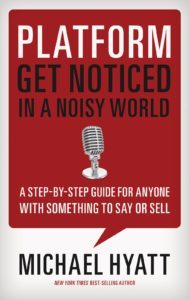
Platform: Get Noticed in a Noisy World
I do want to say two things. One, Michael Hyatt’s book is amazing. I’ve absorbed that thing. It’s well-written. He also has a great blog and he’s done it. That’s the cool thing about Michael Hyatt is he kicks ass basically. The second thing is what I did personally. I did an Indiegogo campaign where I put a video and did day-by-day videos when I was trying to get pre-sales for my Hay House proposal. I pre-sold 250 books. My goal was much bigger. The point is if you get inventive, if you just try things and most of us are just like, “It’ll never work,” and we’re whiny about it. If you actually get creative and excited about it then things will change.
People are really scared to put themselves out there and be seen as a failure. What I say is that 80% of people want to write a book, and you’re doing it. People might point fingers and be like, “They didn’t do it,” and I’m like, “Who’s got a book out? Who’s putting it into the world? Who’s actually taking the steps?” I want everyone to have that vision, “If you really do this the way you, Rob, have been doing it, you are in the 1%.” There are very, very few people who actually take it even as far as you’ve taken it and you’re going to go all the way. That’s huge. I want to encourage everybody. Just get out there and do it. Don’t listen to the haters. If you’re stepping forward, you’re already ten steps ahead of most people.
The last thing I want to say is if you’re trying to do this book by yourself, I think the chances for your success are much lower. I highly recommend find your budget. Go for the kn literary arts or the Book Shepherd. Don’t do this alone, even if you need to get an accountability buddy. This is a very difficult process to do. Build your support team like everything else and you’ll succeed. The chances of success are much higher.
Live Coaching
Hello, Sheza.
Hi.
How are you? Welcome from Guatemala.
Thank you.
How can we help you? Let’s talk about your book.
My book is called Love is My Religion. It’s about traveling through India when I was in my early twenties for two years. Having been growing up as a Fundamentalist right-wing Christian and then suddenly being in India with all these crazy people and wild adventures and just expanding my mind and just really going through this process of de-programming myself from like, “I’m going to hell and the devil is out to get me,” and all of these things that I grew up with. I’m really coming into this place, through all these wild adventures, of remembering that love is what is real. I’ve been working on my book for seven years. It’s been professionally edited three times. It’s seriously ready to go and I just need the next steps.
First of all, I want to say awesome, you have a book written. That is so huge. It sounds like it’s a book that you really care about that’s helpful and going to impact lives. Are you wanting to self-publish? Are you wanting to aim for a traditional publisher? What is your ideal trajectory?
I’m really still in the middle of figuring that out. I have already proposed it to maybe five different agents and publishers and none of them took it. I want it to be as big as it can be. I feel that it’s such a powerful book especially for the younger generation because it’s basically saying you can break out of all of your beliefs and everything you grew up with and really be yourself. I feel like it’s an important book and I want it to be as big as possible. I just don’t know what that direction is.
Is this something you’re going to be able to put a lot of attention on publicizing? Are you doing social media? Is that something that excites you and turns you on, the idea of really getting out there with this book yourself?
Social media in general is a major edge. Click To TweetSocial media in general is a major edge for me, but I also know I need to do it. I feel that I need help. I need someone who can tell me, “You need to put this up today.” Otherwise I will just not do social media. I need a coach. I need someone to help me be like, “This is how you’re going to make your book.” I also have another online program I’ve just finished. I have two major projects. I need somebody to help me.
It sounds like you could use a marketing coach, marketing assistant who specializes in social media just in terms of everything that you’re doing, the program that you have and the book. Personally, I’m not the biggest social media person. I’m not one of those people who’s always on Instagram. I don’t love it to be totally honest with you, but I know we have to do it. This next year, I’m just going to learn to love it as my book is coming out. I’m totally with you on that. It is the way that you as an individual can impact the sales of your book and your program. kn literary, we have a couple of amazing marketing coaches we could pair you with. You can also just Google social media marketing assistants, social media marketing coach and find somebody in your area if that’s what you’d like to do. There are a lot of different ways that you can find somebody to help you with that. It sounds like that’s going to be a primary focus.
In terms of the book, you said you sent it out to five publishers’ agents. I say start feeling discouraged after you’ve sent it to 50. You have no idea how many books that you see out there that are super successful got turned down 50 times before they actually got picked up. You’re looking for the needle in the haystack, the person who falls in love with you and your book. It’s like finding a romantic partner. You’re going to have to go through some frogs before you find your prince or princess. I tell people, “Make a spreadsheet.” Go online, find agencies, do research about who at a different agency is working on books like yours.
Then make a spreadsheet that tells their name, their email address, how they would like to receive submissions. This is super important. Everyone wants them differently. Everybody has different submission guidelines. If you go to any literary agent site, they will have submission guidelines. Put that in your spreadsheet. Then send them whatever piece they want. Some just want a query letter. Some want a whole proposal. Some want a whole manuscript. You send them what they want and then you put in the date that you’ve sent it. Put at least 50 names in that sheet before you start feeling any discouragement at all.
I don’t have any discouragement at all. I believe in my soul. There’s a reason why I’ve spent seven years writing this book. I’m not discouraged. What I want to know is, is my highest alignment to go through a traditional publisher and to spend that time? Because that’s quite a lot of time to send out to those 50 people. Or do I just say, “Screw that,” and self-publish?
The choice is really yours. This is a good place for me to just talk about some of the trade-offs. Definitely, there’s a certain amount of cred someone gets when they’re published by a traditional house because in our culture, it’s very important to be chosen. It’s really actually hard to get chosen by a traditional publisher. If you have, there’s something that automatically you’re seen as being some level above people who are self-publishing, right or wrong. It may not even be right. It’s just one of the cultural norms that is still operating today, which hopefully is going to be debunked over the course of the next ten years, and I think it will. That’s one reason to do it. Another reason is you get expertise. You get editorial expertise, design expertise and marketing expertise that comes from the publisher and you’re not paying for it out of pocket yourself. I never would have anyone hope for a big advance, meaning a lot of money to come to you at the beginning of the process.

Modern Publishing Techniques: Most traditional houses have their books proofread three times.
Most publishers are not offering huge advances for people who don’t have a major platform in place right now. I wouldn’t say that’s necessarily a benefit but there is a benefit to not having to buy all of those services yourself, which you absolutely must do if you’re self-publishing. I’m going to lay it down. You need to get your book edited. You already did. You need to get your book copyedited, which is a technical edit once you’re done making all changes to it. Once it’s set into type, which you need somebody to typeset it for you, you need to have it proofread at least one time. Most traditional houses have their books proofread three times. These expenses can add up and that’s just editorial, not counting the cover design and buying your ISBN, which is the number that allows bookstores to sell your book. There are a lot of steps that are costly along the way and it’s you putting that money upfront if you’re self-publishing.
For most people, that’s going to be the right thing to do. It’s a matter of just budgeting for it, saving up the money and knowing that you’re going to need to spend that money in this way. If you have the time and energy to search for an agent and a traditional publisher and you feel the desire to do so, I’m always encouraging people to do that. You’re likely to get really good feedback along the way. Not from everybody, some people will just be like, “This isn’t for me.” Other people will say, “Here are the three things that I noticed about this proposal. This is why I’m not taking it on.” That’s really good information. It’s actually not just looking for an agent or a publisher but also a process of getting some information that can be very helpful. You can always self-publish. It’s always there.
I want to thank you, Sheza.
Thank you so much for your time.
One thing I want to say is I did hire someone recently to be my social marketing dominatrix. She’s just basically there to boss me around. It’s a great position to have. Let’s bring Ruben. Hi, Ruben.
Hi, everyone.
Where are you calling from?
I’m calling from Belgium.
How can we best serve you?
What I’m feeling right now which would be the accurate thing to say is that I feel overwhelmed on scope of both what I have to share with the world and what it would mean to pour my perspective, my knowledge and experience into a book. You mentioned some things like thinking about a niche, a target audience. Questions like that to me halt my process in a way. I’m a decent writer, but my real talent is an orator to speak to people. I’m used to having an audience in front of me where my sense of where they are at informs my choice of words and my approach and how I approach the subject or whatever it is.
I have a very deep need to speak very clearly about things and to make sure that I’m choosing to express myself in a way that is most impactful. When I write a book, that part of me that’s trying to get that inkling of, “How do I approach this?” it gets overloaded with all the possible ways in which it could be misinterpreted. This is something I’m struggling with because I would like to keep things simple and concise in my first book. I don’t want to try to write about too many different subjects. I want it to be an introduction of what I have to offer, of what I have to say.
What comes to mind first and foremost is that if you an orator, I would recommend you teach the content that you would like to have in your book and record that content. Then have someone transcribe it for you because that will give you an amazing amount of content. You won’t believe how many words you’ll get if you teach a weekend workshop or even a one-day workshop. You can set it up roughly as you would be organizing your book. Chapter one would be an introduction. Chapter two would be the first principle you’re teaching. Chapter three is the next one and so on. Lock your time in that teaching, then you already have your book set up and organized for you. It’s a starting point. If that’s the best way you convey information, then you should absolutely take advantage of that by teaching it orally first. How does that sound as just the starting part?
That’s really good.
I did that with Tuff Love. I took twenty of my episodes, used a software called Trint.com. It’s $0.20 a minute to transcribe versus the $1 that people charge. I had to rewrite my Tuff Loveness into English. There was that process of transcribing it. I picked up a 50,000-word manuscript in about three months just by using the Tuff Love material that I do now. Then Kelly came in and Etch-A-Sketched everything and helped me see the next version of it. The point is I really want to shout out for this concept.
My main goal is to teach and to speak and do a series of videos and live streams and just make myself available in real-time because that’s where my joy is and my skill really is. I just know that I would want there to be a very anchoring point of reference for people that catch maybe a little viral clip or something and they’re like, “Who is this guy? What’s this about?” There is a place that they can all land. I want it to be available for free. What you said about self-publishing and stuff is really encouraging. Another thing that I think I worry about too much is my chances of leveraging credibility. I subjected myself to a pretty intense and rigorous journey and practice of exploration and experimentation, what I know is sound. That’s what I love about it. It’s very solid. When I’m in front of people, they can feel that. When I speak about it with a group or something, they feel it.
The question rarely comes up like, “Who are you? Why should we listen to you?” because in my life it seems evident. When I speak to people online or something, the impression immediately comes up like, “Where did you study? Where did you go to school and stuff?” I’m just like, “I didn’t.” That idea of getting published to me, I don’t even consider it. I am walking this line where the spiritual world and the new age marketplace, what I’m writing, what I’m saying is I challenge a lot of the ideas and the customs that it’s all based on. At the same time, the other side of this, the academic, psychology, sociology, all that world, I’m challenging them as well for pussyfooting around important questions that they are not able to answer.

Modern Publishing Techniques: Once you have a book, you have credibility.
What you’re saying actually does lend itself really well to having a book because right or wrong, once you have a book, you have credibility. Just the fact that you took the time to put your ideas into writing and made it available to other people, something shifts. You can say to people when they say, “Where did you study?” you say, “Actually, you just need to read chapter one of my book. It gives my whole journey and you’ll really understand once you read that.” There’s some way that people are like, “You have a book, then you must know what you’re talking about.” Right or wrong, I’m just telling you that will help a lot and it feels like that does seem to be a good next step for you.
With regards to what I said, what comes to mind to me is it will probably be best for me to share my story of how I lived and what I’ve been through as a way to relate my ideas to the experiences that they came from. It’s a difficult thing for me because even though my life was extraordinary, I don’t want to use that too much as a gimmick to get people interested. I really want people to focus on the ideas and not just paint myself as a hero or something like that.
There are two things. On one hand, I hear you. On another hand, if you have a hook that’s going to get people’s attention, you should use it. The reason for that is that there are so many voices in the marketplace, so many books being published that don’t have that extra boost to get them heard above the crowd. I’m not saying go against something that feels true to you. Obviously, it needs to feel right. If you’ve got a great story, that’s a huge bonus. It will actually help serve you in getting the word out about the teachings. It actually is the thing. It’s called a hook because it hooks the fish, then you reel it in and teach them what you know. I would say sit with it and work on that in your own heart whether it feels like you can do that with a certain amount of alignment in you, but know that that is an amazing gift that you have in your life story to help people get into the teachings that you have to offer.
Ruben, thank you so much for coming on the show with us. Good luck. Stay in touch with what’s happening.
Thank you so much.
Let’s talk about your book and let’s talk about kn literary arts and how people can get in touch. Light us up. What’s happening?
The book, first of all, I’ll just say it’s not available yet. I am working on my final revisions. It’s due January 31st to Hay House and it’s going to publish November 13th of this year, which just gives you an idea of the timeline for getting published by a traditional house. I’m submitting it January 31st. It’s not publishing until November. That is a pretty typical timeline. In fact, it’s a little faster than we expected. It was going to be turned in on January 31st, published in January of 2019 but because of a conference that I’m going to be speaking at, they’ve moved it up to November. It is called Your Brave and Beautiful Book. I’m very excited about it. I’m super happy. If you want to get updates about it, please sign up for my newsletter. You can do that at KNLiterary.com, which is our website.
There’ll be a pop-up that you can just put in your name and you’ll get a free piece of information from me, then you’ll be on my mailing list. kn literary is something that I’m so proud of and it’s gone way beyond anything I ever imagined. I did not start this company thinking it would turn into what it is today. It has a life of its own. Basically, we’re a matchmaking service for writers and would-be authors who need editorial help, which is all of you. Everyone needs to be edited. Don’t think that just because you’re a great writer you don’t. I’m about to go into a serious process of editing and I am an editor. I just want to say everyone needs a second set of eyes, a third of set of eyes on their book, both content editing and technical editing. If you’re interested in knowing the difference, you can go to the FAQ on my website. It explains that.
Basically, we help people get started. We’ll help you craft the concept for your book. We’ll help you build an outline which to my mind is the number one most important first step that one can take with their book is creating an outline. We can help coach you through the writing process. We’ve got Breakthrough Resistance Coaching, which is extremely important for many people because there are a lot of roadblocks that come up along the way as you’re starting to write. Then we do all sorts of packages around editing. One round of edits, three rounds of edits, all the way up to ghostwriting if you don’t have time or talent or interest in writing the book yourself. You can start the process of all of that by going to our website, KNLiterary.com/Questionnaire.
There’s also a little Get Started link on the homepage. The questionnaire just tells us a little bit about you, sets you up to have a call with one of my matchmakers. We are a zero hard sell company. This whole thing has just taken off in a way I never expected. I’ve never been needing to pound the pavement to get people in the door. You can call and have a really great conversation and decide we’re not for you, no problem. There’s never any pressure at all. Go ahead and fill out the questionnaire. Hop on the phone with Nikki or Chandika who are our awesome matchmakers.
We’re just trying to figure out how many clients we’ve served. Our preliminary count, I feel surprised and super excited. Since we started in 2013, we have helped over 535 authors get their books underway. We really do have a deep experience especially in transformational non-fiction which is self-help, personal growth, spirituality, inspirational memoire. We also have plenty of editors who do fiction, business books, cookbooks, children’s books, all the things. Anything that you need help with, we would love to be able to serve you.

Modern Publishing Techniques: There are a lot of roadblocks that come up along the way as you’re starting to write.
I’m going to shout-out a testimonial. It really did evolve my book, evolve my practice and it was a total positive experience. I think it’s really important, “It’s not a hard sell. This is what we do. If you want it, it’s there. If not, there are other ways to do it.”
You can find there are a thousand different people offering editorial services and such online. Just Google it and you will find a lot of different options.
Thank you so much, Kelly, for being on the show. What a blast of important information. Thank you for your contribution to our listeners and also contribution to those 535 authors out there who impact thousands upon thousands. Thank you so much. I’m really grateful. I look forward to reading your book.
Thanks, Rob. It’s so good to be here with you. It’s been fun to talk to you.
More things coming. We’re starting two podcasts a week. This show will show up every Thursday live. Then I’m starting a combo series called Six Conversations, starting off with six conversations with Arielle Brown, my good friend and colleague, and other conversations down the line. Tuff Love going to twice. Please go to iTunesand subscribe. Send a review saying how cool I am. I would appreciate that. I’m grateful for you as always for your contribution to me showing up every week live and being able to download. Thank you so much. New website coming, book coming, product coming, 2018 is off the charts. I’m very excited. It all starts here with Tuff Love where I get an opportunity to wax my own poetic and impact the world. Thanks so much. Go forth. Get some nookie. Have some fun. I’ll talk to you soon. Take care.
Thank you so much, Kelly, for being on the show. I’m really grateful for all the knowledge you put in there. I’m happy, happy to have you on the show. Thank you so much for Sheza and Ruben being vulnerable speaking about so and hopefully you’ll get some good knowledge. That’s KNLiterary.com if you want more from Kelly, and you can always get more from me at TuffLove.Live. Thanks so much for listening to the show. Go forth, have a great week and we’ll see you soon. Thank you.
Resources mentioned:
About Kelly Notaras
 Kelly Notaras is a writer and book editor who has worked at HarperCollins, Penguin, Hyperion Books and Sounds True. In 2013 she founded kn literary arts, an editorial studio helping authors write, edit and market their books. Her first book, Your Brave and Beautiful Book: How to Get Started, Keep Writing, and Unleash Your Wisdom Into the World will be published by Hay House in 2018. She lives between Colorado and the Bay Area. Find her online at www.knliterary.com.
Kelly Notaras is a writer and book editor who has worked at HarperCollins, Penguin, Hyperion Books and Sounds True. In 2013 she founded kn literary arts, an editorial studio helping authors write, edit and market their books. Her first book, Your Brave and Beautiful Book: How to Get Started, Keep Writing, and Unleash Your Wisdom Into the World will be published by Hay House in 2018. She lives between Colorado and the Bay Area. Find her online at www.knliterary.com.
Podcast: Play in new window | Download




